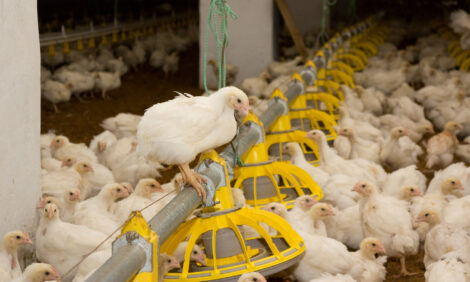



Eat Chicken and Eggs Instead of Beef to Save Planet
SWEDEN - Switching our diets to include more eggs and chicken while reducing beef consumption could lead to major global climate benefits, according to new research from David Bryngelsson at the Chalmers University of Technology in Sweden.Over the past 20 years, Europeans have increased their per capita consumption of beef by over 50 per cent. They have still not caught up with the US, but people all over the world are eating an increasing amount of beef.
"Cattle ranching is already responsible for 15 per cent of the greenhouse gas emissions that humans cause.
"The diet we are accustomed to in wealthy countries is not consistent with our climate goals," said Mr Bryngelsson, who recently presented his doctoral thesis investigating various future scenarios to determine how the climate would be impacted if humans were to change their diet.
People may have heard that that a vegetable diet results in less greenhouse gases. But Mr Bryngelsson's research shows that we can continue eating animal protein and still make a major contribution to the climate – if we replace beef with poultry and eggs, and cut down on our consumption of milk and cheese.
"Even people who eat an extremely protein-rich LCHF [Low Carbohydrate High Fat] diet with chicken as the base make a greater contribution to the environment than vegetarians who consume a great deal of dairy products".
There might be ethical objections to the current chicken industry, but Mr Bryngelsson believes that climate gains will prevail even with more animal-friendly production methods.
How large a space domesticated poultry has to move around in does not impact greenhouse gas emissions to any great extent. For example, if chickens are given a space that is five times larger, the space is still small in relation to the space required for chicken feed production.
The difference between chicken and beef as regards area requirements and greenhouse gas emissions is so great that there is no doubt that the chicken leaves a smaller carbon footprint regardless of production method.
Technical improvements in the production chain can to a certain extent also reduce the food industry's climate impact, but cattle are still the biggest problem.
It is difficult to change the fact that they need a lot of feed and that they release methane as they ruminate. Furthermore, forests are being devastated to make room for the increasing number of cattle, which also impacts the climate.
"Changing our consumption is the most effective way to reduce the impact food has on the climate, and my studies show that it would also make it much less expensive to reach climate goals on a global level compared to merely making changes in the energy and transport sector.”
“Since around 70 per cent of all agricultural land is currently used to raise cattle, converting to a more energy-efficient diet of poultry would free up land for cultivation of for example bioenergy," says David Bryngelsson, who has also studied that possibility.
David Bryngelsson's studies show that a vegan diet is still the most climate-friendly, since plant based food is more efficiently produced than livestock based, but the greatest gains are to be had by discontinuing products from cattle.
"We have done our calculations based on a diet similar to the one most of us eat today, but which is still greatly beneficial to the climate.
"You could say that chicken is like an electrical car – it is a better alternative, yet still very similar to what we are accustomed to.”








